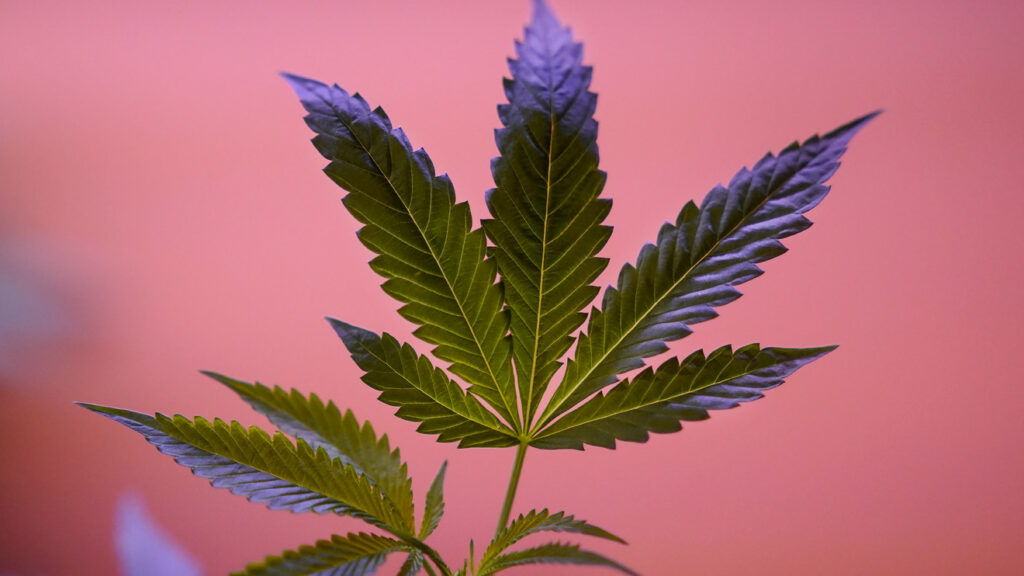CHATTANOOGA, Tenn. (WTVC) — With more states legalizing marijuana, new questions are sparking a debate about the drug that remains illegal in Tennessee.
“This is a tricky issue for us in criminal justice,” Hamilton County District Attorney Coty Wamp said.
“We have all these different types of THC and deltas, and all of this product that looks the same, but isn’t the same,” said Wamp, and prosecuting those who grow marijuana is not their top priority over other drug crimes.
“I don’t want anybody in this county to think that we’re prioritizing marijuana or that we are spending hours on search warrants for marijuana. We’re not. Normally, it’s a drug dealer and a search warrant that has to do with some type of fentanyl or MDMA or heroin or meth,” says Wamp.
One county west of Hamilton County last year, an aerial marijuana search led to tragedy.
A helicopter crash killed two law enforcement officers when it struck a power line and crashed in a wooded area on Aetna Mountain in Marion County in August of last year.
Highway Patrol Sgt. Lee Russell, and his passenger, Marion County Sheriff’s Office deputy Matt Blansett both died.
Now, policy revisions are on the table on how to make these searches safer, while marijuana is still illegal but low priority to many of those fighting drugs.
“We have to look at the whole totality of the eradication process. And we are currently gathering policies from other departments to see kind of how they handle it and get some go-by’s,” says Gene Hargis, chief detective for the Marion County Sheriff’s Office.
Policy changes could be in place in Marion County in the next two months, around the time peak season begins for marijuana eradication.
“We probably average one or two cases per year,” says Hargis. “I don’t think there was any made last year because of the tragedy that we had.”

Chris Carter is the manager at Snapdragon Hemp, one of many stores that sell THC-infused products.
“I feel for the family and I hope they’re doing OK. But that’s just needlessly life taken away for something that doesn’t need to happen,” Carter said.
Carter says the medical benefits of marijuana help with his anxiety and depression.
“I used to be very reclusive. I weighed almost over like 300 pounds, never went outside or anything like that,” says Carter.
He believes routine searches for marijuana are a waste of taxpayer money.
“We can allow people to drink and get drunk driving accidents, hurt other people, smoke cigarettes, secondhand smoke, stuff like that. And no one bats an eye to that stuff,” Carter said. “When it comes to marijuana, and stuff like that, it has medical benefits that have been proven scientifically, they just look the other way.”
The Tennessee Drug Task Force uses federal dollars to find and fight illegal marijuana growing.
“I get as many calls and complaints about THC-related products as I do almost anything else,” says Farmer.
Special agent Tommy Farmer says about $600,000 is budgeted for their Domestic Cannabis Suppression Eradication Program.
“There are a cost to us having various assets to vehicles or weapons or training, or to the type of testing equipment that we use,” says Farmer. “We live, unfortunately, in an age where it’s very expensive to have the type of testing equipment that we have to have, for example, to identify fentanyl using the types of equipment that we do. They’re expensive. But it’s also it’s a matter of public safety. And it’s a matter of public safety and health.”

From federal dollars to county price tags.
“I think marijuana was more of a priority to eradicate 25 and 30 years ago,” said Steve Wilson, Walker County Sheriff.
Local law enforcement says it’s a much smaller amount.
“Utilizing vehicles and burning up gas and those types of things, just they’re gonna be a small amount of money. But it would not be a huge amount of money from a local standpoint, going toward that eradication effort,” says Wilson.
Carter says big or small, “I feel like that’s just a waste of funding that could be put into public education, public transport, stuff like that.”
H/T: bcnews4.com



